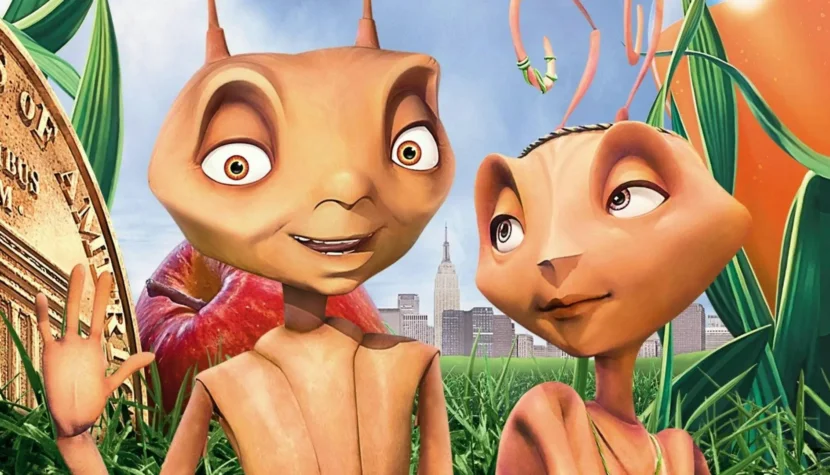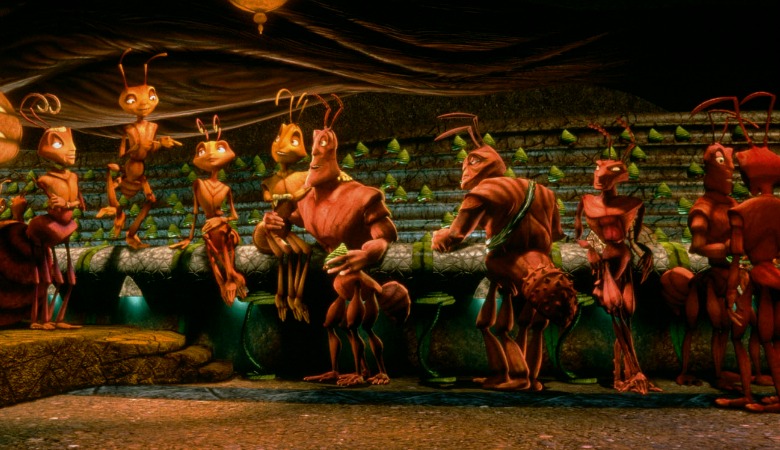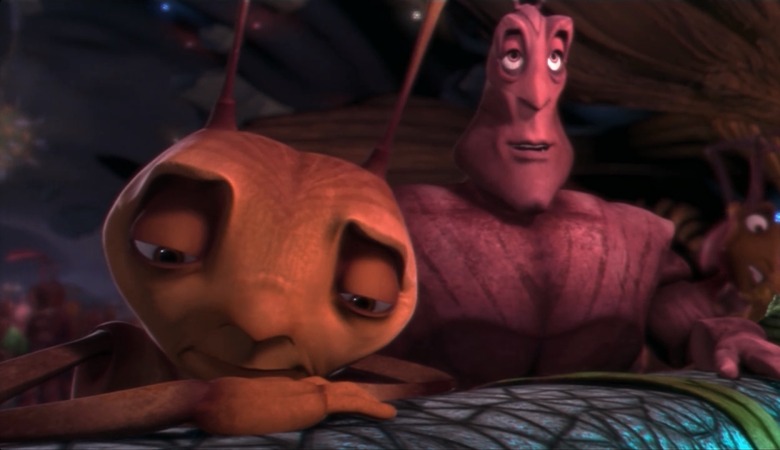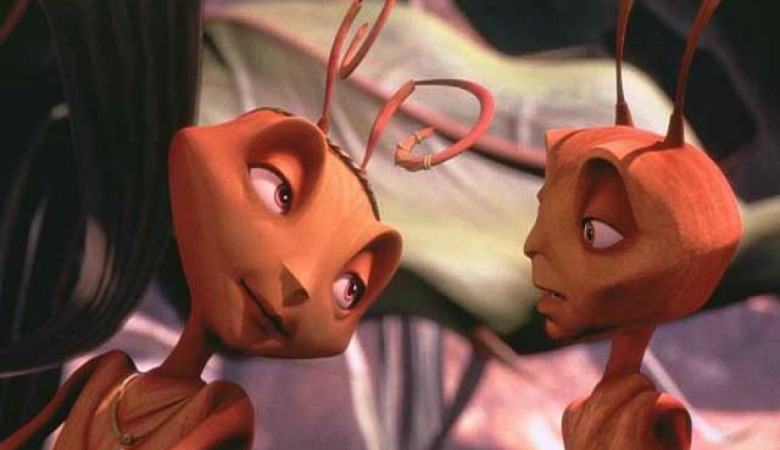ANTZ. It’s not so much about chases, thrills, or action

In Antz, the opening monologue of Ant Z-4195, voiced by Woody Allen, could just as easily have been the introduction to Annie Hall. Z embarks on a self-analysis and summarizes his life, unleashing grievances, assigning blame to those around him, accusing himself, and ultimately resigning to despair. His mother didn’t dedicate enough time to him; his father was a weakling. Z is a born pessimist and loner. He feels utterly out of place in the vast anthill where every individual is assigned a social role at birth—either worker or soldier. Neither option suits Z, who cannot conform to the system. The protagonist is an individualist, in no way part of the group. He is a self-aware individual burdened by his complexes, searching for the meaning of life and any form of motivation. Another neurotic character—so often encountered in Allen’s work—Z is practically an archetype, a symbol of Allen’s cinema.
As one might expect, the antidote to emotional stagnation and boredom turns out to be love. This isn’t a surprise; it’s more of a standard. However, it’s delivered with finesse, skill, and lightness. The depressive yet humorously sardonic confession of an ant to a psychiatrist perfectly sets the tone for this animation.

Ant Z is steeped in the essence of Allen’s cinema. His physical presence isn’t even necessary; the recognizable voice alone imbues the film with the distinctively dramatic tone of the New York filmmaker’s oeuvre. Of course, in the case of Antz, there’s much more to it: sophisticated irony, a focus on the psychological dimension of the characters—just as talkative—and brilliant dialogue. It’s almost hard to believe it wasn’t written by the creator of Zelig. It’s on the same level, with equally skilled writing.
It was highly unfortunate that around the same time as Antz, Pixar’s A Bug’s Life hit theaters. I can’t decide which of these animations is superior. I consider both artistically fulfilling, though they represent different cinematic models. They achieve equally satisfying results using different tools. Pixar’s film operates on a meta-textual level, paraphrasing and satirizing genre conventions. It’s probably the least original narrative in Pixar’s repertoire, based on cultural recycling, but it flawlessly adheres to the conventions of postmodern cinema. It’s about playfulness and engaging the audience.
In DreamWorks’ film, the same insect microcosm primarily serves as an allegory of our human, class-divided society. The anthill resembles a metropolis. The queen mother’s palace towers above on the upper levels, while the workers toil below, digging tunnels. Extreme uniformity has taken hold; differences have disappeared; everyone is the same. Even during leisure time in the club, ants begin to dance in unison, mechanically repeating the same moves without any resistance but with smiles on their faces. This isn’t totalitarianism (it’s far from Orwellian dystopias), but a hierarchy accepted by all. It’s a way of life that must be followed—the only proper and unfortunately the only possible choice. It’s a tradition ingrained in their very being. This state of affairs is one of the sources of Z’s frustration. He wants to escape it and live in solitude, though later the instinct for community proves stronger.

Paradoxically, Antz ultimately praises collectivism. Social life is essential for an individual’s psychological health. It’s a system of interconnected vessels, like the tower of ants built in the finale. Nothing is as rewarding as success in teamwork. The titular protagonist only realizes this at the end.
Earlier, Z and his beloved Princess Bala reach the goal of their journey—Insectopia. It turns out to be nothing more than an idyllic garbage dump. There’s plenty of food, of course, but it feels like something is missing. It’s an imperfect paradise. Fortunately, Z is forced to leave it. I’m convinced that if he stayed there, he’d fall into an even deeper depression. Prosperity would kill any desire for life.
Insectopia and the episodic appearances of humans play a crucial role in this story. They introduce a new dimension to the ants’ lives, even a kind of mysticism. Insectopia is akin to heaven, yet also a taboo, something that cannot be openly discussed. The enormous size of humans helps convey the actual scale of events. The creators also succeed in drawing out a poignant metaphor, albeit an unsettling one: ants on Earth are as insignificant as humans in the universe. No one will hear our cries; our internal tragedies mean so little. Allen would undoubtedly approve of this melancholic tone.

What I appreciate most in Antz is its abundant exposition, reflections on the ants’ social system, and the protagonist’s psychological state. It’s not so much about chases, thrills, or action. Often, the plot stands still, delving deeper into the depicted world. Only towards the end is an antagonist introduced somewhat forcefully—unfortunately with a weak, unconvincing plan. This flaw, however, can be overlooked, as it’s just a minor script blemish on an otherwise unconventional and highly creative text.
It’s a shame that DreamWorks soon forgot what constitutes the strength of any production. Nonetheless, Antz undeniably heralded the advent of great animated cinema in the 21st century.

